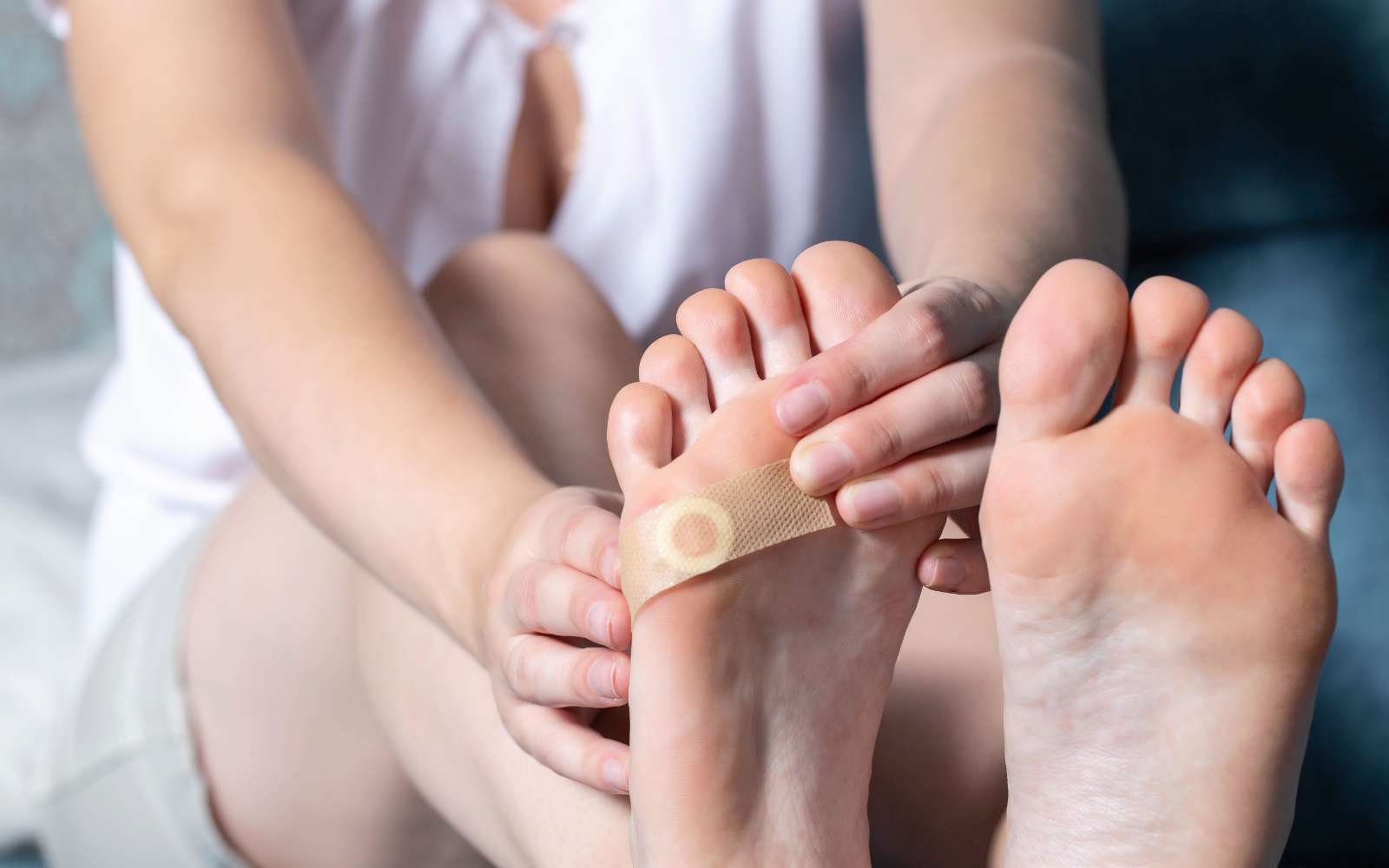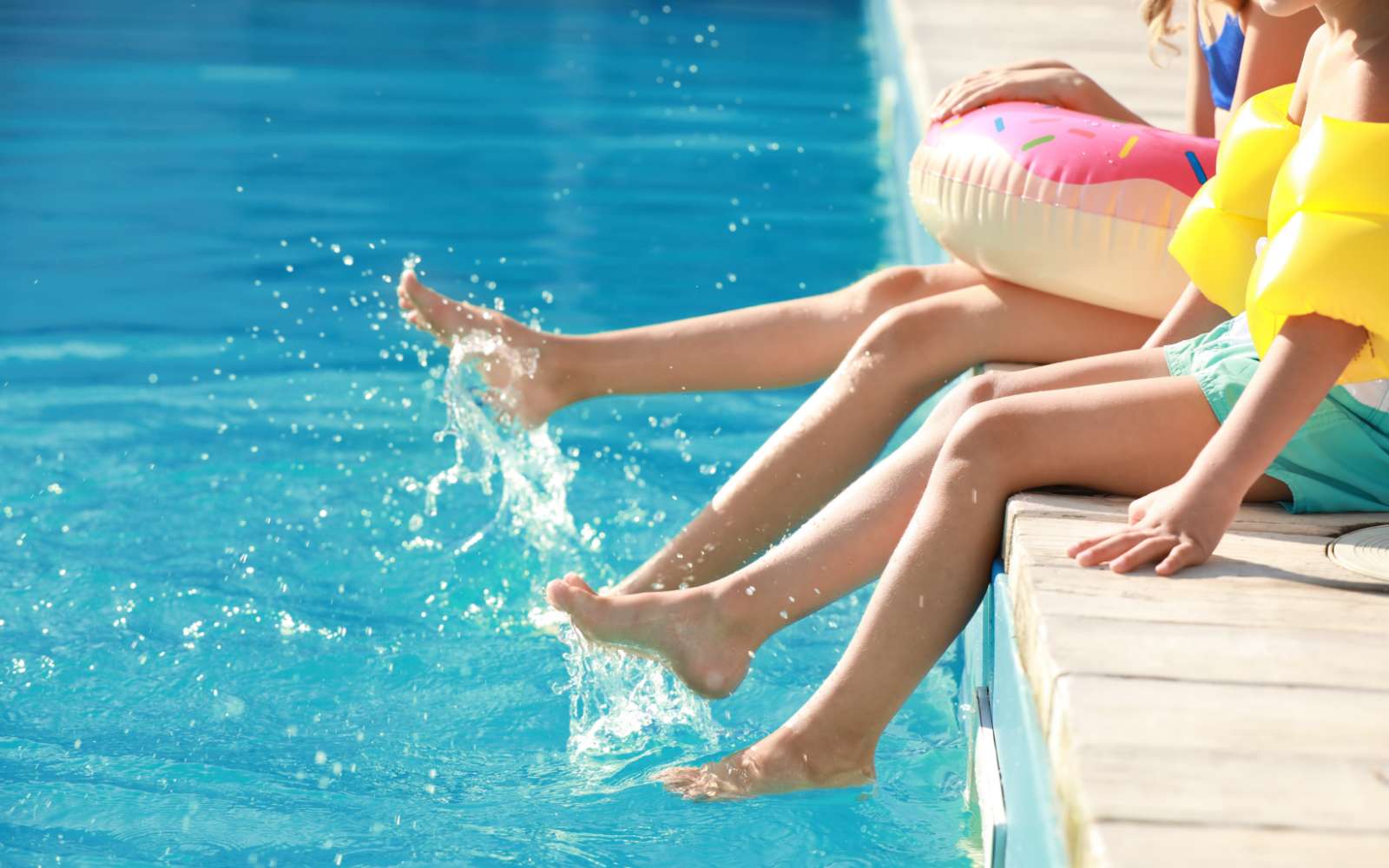Get Rid of Plantar Warts For Good
Learn about plantar warts, their causes, symptoms, and treatment. Treat and remove plantar warts with Wart-Off!


Nobody likes warts. While most warts generally don’t present any serious health concerns and can even go away themselves over time without treatment, they’re unsightly and uncomfortable, can be embarrassing and painful, and can be spread to others if not treated and looked after properly.
Warts are viral infections of the skin which are most prevalent in older, school aged children, but can affect anyone. They are caused by different strains of the human papillomavirus (HPV), which enters the body through tiny cuts or breaks in the skin.
What are Plantar Warts?
Plantar warts are a type of wart that grows on the soles of the feet. They can present as small, rough growths and generally show up on the heels or balls of the feet.
As with other warts, plantar warts are caused by HPV, which infects the outermost layer of skin on the feet after penetrating the body. For more information on other warts, read our article, "What is a Verruca?"
Plantar warts may appear as small, rough, raised bumps on the skin, sometimes with tiny black dots in the centre. Plantar warts are often uncomfortable and can be painful to walk upon, or when any pressure is applied to the foot.
Plantar Wart Symptoms
Commonly experienced plantar wart symptoms include:
-
Small, fleshy, raised bumps appearing on the bottom of the feet.
-
Rough, grainy, or bumpy texture across the surface of the wart.
-
Visible black dots or specks at the centre of the wart, which are actually tiny, clotted blood vessels, sometimes known as wart seeds.
-
Pain or tenderness when standing, walking or applying any pressure to the foot.
-
Thickened or calloused layer of skin appearing over the wart.
-
Warts appearing in clusters or spreading to other areas of the foot.
In some cases, plantar warts can cause less common symptoms such as itching, bleeding or a burning sensation. It is important to seek medical attention or speak to your health professional if you have a plantar wart that is causing significant pain or discomfort.
What Causes Plantar Warts?
Plantar warts can develop when the highly contagious HPV infects skin cells on the bottom of the feet through small cuts or breaks in the skin.
The virus can be transmitted through direct contact with an infected person’s skin or through contact with contaminated surfaces such as shower floors, swimming pool decks or towels.
Certain practices can increase the chance of developing plantar warts:
-
Walking barefoot in public areas where it can be more likely to contract the virus, such as in gyms and locker rooms, public showers, and swimming pools.
-
Engaging in activities which can increase the risk of cuts to the bottom of the feet, such as running, walking barefoot outside or dancing. Having cuts or abrasions on the bottom of the feet allows an entry point for the virus to take hold.
-
Having a weakened immune system can make it easier for the virus to take hold in a new host.
Are plantar warts contagious?
Yes, HPV is very contagious and easily transmissible. Taking precautions such as wearing thongs or sandals when walking around public swimming pools, gyms, locker rooms, amenity blocks and showers may reduce one’s chances of encountering HPV and developing plantar warts or other warts.
It is a good idea to try to keep feet clean and dry where possible and to avoid touching other people’s warts.
How to Treat Plantar Warts?
Plantar wart treatment options include:
At home treatments: over the counter wart treatment products such as Wart-Off Paint and Wart-Off Stick contain the active ingredient salicylic acid, which is able to help dissolve the wart over time. Using Wart-Off Paint or Wart-Off Stick helps to remove warts quickly and easily. These treatments should be applied to the wart consistently and as directed by the manufacturer for best results.
Cryotherapy: this process involves freezing the wart in order to destroy the wart tissue. The procedure can be done by a healthcare professional using liquid nitrogen or, alternatively, at-home cryotherapy kits such as Wart-Off Freeze Spray are designed for easy and effective wart removal using dimethyl ether (DME).
Laser treatment: involves burning and destroying the infected tissue using a laser. The procedure must be performed by a health professional and is generally a reserved for more severe instances where a stubborn plantar wart has not responded to other treatments.
Prescription medications: in some instances, doctors may be able to prescribe stronger topical medications or oral medications such as antivirals, immune system modulators or antibiotics to treat a plantar wart or other warts.
Surgery: in rare cases, surgery may be an option in order to remove a stubborn plantar wart completely.
Treating Warts at Home
Wart-Off offers a range of home treatmeant options for common and plantar warts.
Wart-Off Freeze
Wart-Off Freeze is an easy-to-use freeze spray treatment designed to help you remove warts with minimal effort. Based on the cryotherapy technology used by health professionals, this effective freeze spray offers a quick 10-second application to treat warts on hands, feet, and body. It is suitable for verruca (common and plantar) warts and water warts.
Wart-Off Freeze offers a unique Cryo-dome Technology a closed chamber applicator that seals in the freeze spray so the wart gets much colder, freezing it to the core.
The active ingredient in Wart-Off Freeze Spray is dimethyl ether (DME), which helps to effectively remove warts through cryotherapy. This easy-to-use spray offers a convenient and efficient alternative for wart removal, allowing you to treat the affected areas in the comfort of your own home.
Wart-Off Freeze includes protective plasters and cleansing swabs, ensuring a complete and hygienic treatment process. This product is suitable for children aged four years and older, making it a versatile option for the whole family. With 15 applications per can, Wart-Off Freeze Spray offers multiple treatments for your convenience.
Always read the label and follow the directions for use.
Wart-Off Paint
Wart-Off Paint is an easy and effective treatment designed to help you remove warts quickly and without hassle. Its powerful formula combines the properties of salicylic acid and lactic acid, working together to destroy wart tissue. This wart removal treatment is specially designed for both common and plantar warts, ensuring versatile and targeted action.
One of the key features of Wart-Off Paint is its special pinpoint applicator, which allows for precise application of the solution onto the wart. This ensures that only the affected area is treated, minimising any potential irritation to the surrounding skin. The active ingredients within Wart-Off Paint are 20% w/v salicylic acid, 12.5% w/v lactic acid, and 10% w/v podophyllum resin, all working synergistically to provide an efficient and fast-acting wart removal solution.
Always read the label and follow the directions for use.
Wart-Off Stick
Wart-Off Stick is an easy-to-use treatment designed to help you remove warts without any hassle. The formula contains salicylic acid, which is effective in destroying wart tissue. This wart removal treatment is ideal for both common and plantar warts, offering versatile and targeted action.
One of the notable features of the Wart-Off Stick is that it eliminates the need for messy liquids, making the application process cleaner and more convenient. The active ingredient in Wart-Off Stick is salicylic acid at a concentration of 400 mg/g (40% w/v), which works efficiently to provide a fast-acting wart removal solution.
Always read the label and follow the directions for use.
Other Articles




